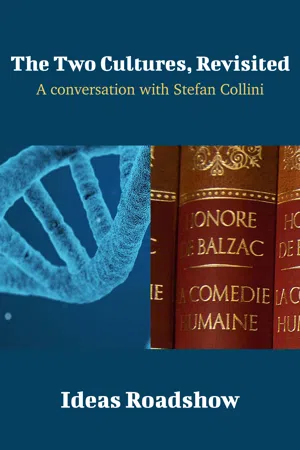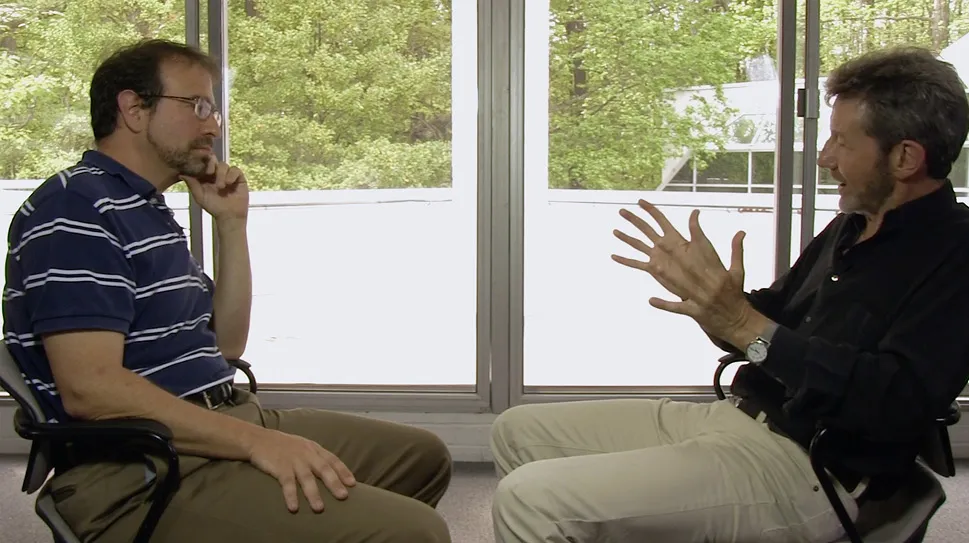![]()
The Conversation
![]()
I. Cultural Assumptions
On the benefits of reading
HB: Let me start with a candid admission. A few months ago I had never heard of F.R. Leavis. I had heard of C.P. Snow, and The Two Cultures, but the truth was that I only realized later that I knew even less about where that phrase came from than I thought I did.
Which brings to mind a funny story that led to me contacting you. I was in a book store about 9 months ago and spotted a copy of The Two Cultures—the Canto edition with your Introduction.
And I thought to myself, I should probably read this because this is one of those canonical phrases that I’ve not only heard of, but also used, and I should learn about the historical details. But then I felt overcome by almost a sense of embarrassment—I’m not sure if you’ve ever felt this way—but my sense was that this is so much a part of general culture that at some level I felt I should already know all about it and so I shouldn’t have to buy it.
SC: It’s like going up to the counter and asking, “Do you have a book called War and Peace?”
HB: Exactly. And so I had this little battle with myself and I eventually concluded that I was just being silly. I was pretty sure that I hadn’t actually read it before, so I should take the opportunity to buy it and read it.
And when I went to the cash to pay, the fellow at the cash looked down at my purchase and said, “Oh, C.P. Snow and The Two Cultures. Do you think it’s just as relevant today as it was when he wrote it?”
And I replied, “Well, actually, I’ve never read it, you see. That’s why I’m buying it.” And then he turned to me and admitted, “I’ve never read it either.”
That gave me a sense of how much this phrase has permeated the public consciousness. Many people are aware of the fact that C.P. Snow said some things about “two cultures”, about the growing gulf between the humanities and the sciences, but that’s really as far as it goes.
So let’s start off with the basics. What actually happened? Who was C.P. Snow, and what did he actually say?
SC: What I liked about your story was that the man at the cash had the assumption that you could have quite an interesting conversation about this even though neither of you had read it. And I think that’s partially because the phrase has come to stand for a set of issues: even people who’ve never read Snow’s actual text think that there is something quite interesting here. Maybe they think it’s to do with the place of science in our culture, or maybe they think it’s got something do with how we should organize education, but they’re willing to be engaged just by the phrase, without even having read the thing itself.
But let’s go back a bit, as you suggest, and give a sense of what he was really saying.
It might be helpful if at first I just say a word or two about how Snow got to this point. Snow trained originally as a research scientist, as a chemist, and his scientific career was not altogether successful. He had one or two setbacks, he claimed some discovery that didn’t quite stand up, and he progressively moved towards administration.
When the Second World War started he began recruiting scientists for government service, and then after the war he carried on recruiting them for the civil service. At the same time, through the 1930s and into the 1940s and 1950s, he was writing novels very successfully.
So when he got invited in 1959 to give this high-profile lecture at Cambridge, he already had quite a reputation as a novelist, he was known to be somebody who was a trained scientist—in fact he was thought to have a bit more of a scientific reputation and standing than he really did have, he hadn’t been a practicing scientist for some time—but he certainly came from that background.
And so he was able to set himself up as, if you like, having a foot in both camps; or at least being an authority about these things in a way that not so many people could. That, I think, is one crucial thing that led to the success and the amount of attention that this lecture got.
I think what Snow was most animated by was the thought that the application of technology to bettering the world is going to become more and more important: to feeding those in the less prosperous parts of the world, to developing the economies of the more prosperous parts of the world, and so on.
And he was very concerned that the people who were in a position of influence and power in Britain—not just in Britain, elsewhere as well, but he mainly concentrates on Britain in that lecture—were, by and large in his view, not scientifically trained, not really familiar enough with the possible benefits of science and how scientific thinking worked. And so he believed that many of the advantages of the use of science and technology were just not going to be realized, that people who were ignorant of them were going to be making the wrong sorts of decisions.
HB: And not only that the advantages wouldn’t be realized, but that scientific thinking was even sometimes being scorned by those in power.
SC: Well, that’s the thing. Because he then says that what’s happened here is that we’ve had two cultures grow up, really: those who are educated in what he calls the ‘traditional literary culture’ who are often those who became the most influential and achieved positions of power. I should say that we could take issue with that: that’s not necessarily very accurate about Britain, or the United States for that matter, in the 1950s. But we can come back to that.
He saw the literary formation as the traditional dominant culture, and then over here were all those who were trained in science. And the evaluation, in society at large, was that the literary culture was somehow “Culture” with a capital C: it was respectable and was something that people could aspire to and look up to. Meanwhile, the scientific culture, according to Snow, was looked down upon a bit, it was viewed as being somehow slightly shabby and utilitarian.
And one of the impulses, I think, in this famous lecture is to assert the standing and the importance for the future of the world, of science and technology—not just in intellectual terms, but in terms of global social and economic development: to minimize, if not to overcome, what he saw as this damaging divide.
I think that’s a reasonably accurate and fair account. I think you’d have to say, as you read the lecture more closely, that he actually wants to assert the priority of the scientific culture over the literary culture. It’s not so even-handed as all that.
![]()
- Have you heard of the phrase “The Two Cultures”? Have you read Snow’s lecture?
- What do you think of when you hear the word “culture”? Is science part of “culture”?
![]()
II. Saving the World
C.P. Snow’s moral agenda
HB: Even before we get there, he does make this illustrative comment exactly along the lines of what you’re saying: rhetorically asking how many among us are able to demonstrate any real awareness of the second law of thermodynamics, a rough scientific equivalent in his view to being familiar with the works of Shakespeare.
And my sense is that, it is that aspect of The Two Cultures that pervades the public consciousness. What is The Two Cultures about? Well, we have the humanities and we have the sciences, and for far too long the humanities were considered more important and the natural home for a fully capable and intellectual dynamic individual, while the scientists were just these geeky, number-crunching people who could carry out various necessary, as you say utilitarian, calculations, but weren’t really all that impressive or cultured in the broad, general sense of things.
So that part I expected. But what you mentioned just now: the overwhelming importance of science for the explicit betterment of humanity, that was something that completely floored me when I read it, because I had no awareness that it had been talked abou...

